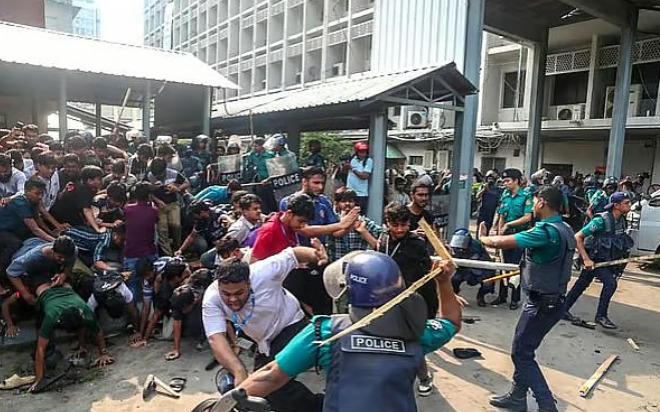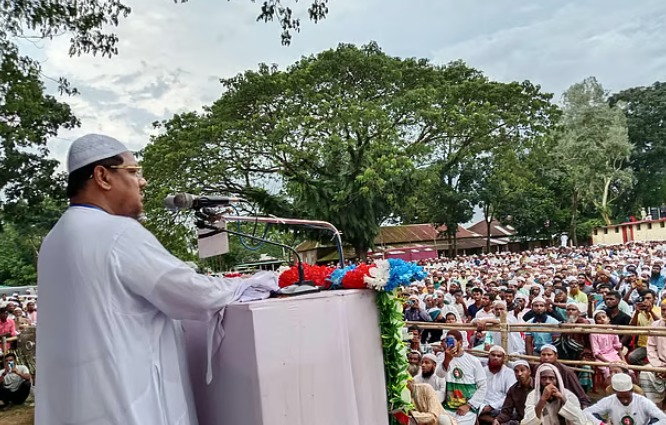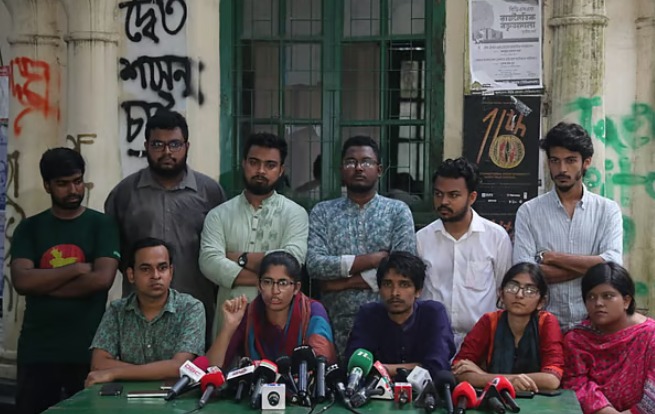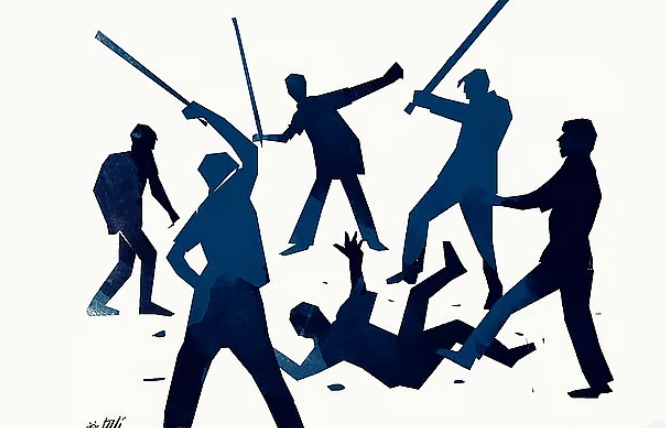Desk Report,
Why is the question of Awami League joining the movement?
Any fatalistic society has a past and a future at its core. Since the present is so absent from that society, there is no need to discuss real problems or solutions to them. Perhaps this tendency is most visible in politics.
Why is the question of Awami League joining the movement?
Looking at the political landscape of Bangladesh, it is clear that the past has dominated the present in politics here. The main task of each government that comes to power through the ultimate sacrifice of citizens is to devise strategies for prolonging its power in the future, rather than solving the problems of its citizens. As a result, there is no precedent for a peaceful transfer of power in the political history of Bangladesh for more than half a century. Regardless of the party, the party in power has the blood of the citizens on its hands. The more authoritarian, the more undemocratic, the more autocratic the government has become, the deeper the blood stains have become. The stronger the nexus of the military and civil bureaucracy, politicians and the privileged business groups, by completely excluding the people from the government and the state, the harder it has become to remove it from power. Here, power politics inevitably becomes a street fight, and the dead bodies of citizens are an important ‘weapon’ in that decision.
Finding the reason why Bangladeshi society, which was born through a bloody liberation war, has become so divided after five and a half decades has become an urgent political duty. Because, the question of our economic development is also inextricably linked to this urgent question.
When the attempt to alienate a political group in society continues with state patronage along with power politics, the sense of insecurity and uncertainty that arises among that population makes them afraid of becoming the mainstream of society and the economy. Some of them choose all possible ways to harm the economy. The politics of alienating political groups is also a big reason behind Bangladesh’s inability to stand as a potential economic power. Our mainstream political parties always create others. Every political party in power is responsible for the oppression and killing of citizens. Some more, some less. But no one ever thought it was necessary to get out of this circle. The wounds, the trauma of killing and oppression while in the opposition, when they go to the government, become a tool to suppress the opposition. No one took the initiative to get out of politics from this circle. As a result, in any period, a section of citizens has received all the benefits of the state, they have become the ruling class and a section has remained the subordinate class.
Even if there are people with party identity for our political parties, people do not exist as citizens. It is from this source that the rulers portray a political group as an ‘evil force’, and they spread the fear that that ‘evil force’ is returning among their support groups. This culture of fear ultimately creates an area of oppression. The question is, will we continue to wander in this cycle forever? The 24th uprising certainly brought that possibility of the past. Because, although this uprising was strongly political, no political group was at its core. Citizens who were struggling to get rid of the authoritarian rule and mafia economy that was weighing them down like stones took to the streets. People of all views and walks of life united on the issue of Hasina’s downfall. Even a large section of Awami League followers took to the streets.
After a year, it is being said strongly all around that we are about to lose another chance to turn around. Reforms, upper house, lower house—the real crises of people’s lives have been buried in these arguments. At the same time, except for a few groups, almost everyone who was in the uprising has moved away or been left out. As the people have become isolated from the government, the bureaucracy has returned even stronger. With the bureaucracy in the driver’s seat with right-wing political dependence, the Awami League, which fell in the uprising of the students and the masses, is being heard saying that it is ‘coming back’. It started with the violence that occurred around the NCP rally in Gopalganj. After the student protests after the Milestone College tragedy and the protest of the eleventh grade students at the Secretariat, the issue of Chhatra League’s entry into the student movement has been discussed on social media. But both protests were able to happen due to the use of force and the wrong decision of the government.
The question is, why is the question of the return of the Awami League and the Chhatra League banned by the executive order coming up just one year after the 24th uprising that took place with great potential and power? There is no precedent for any political party that was ousted from power in a mass uprising to be rehabilitated in politics in a very short period of time. That is an event beyond the principles of political science. For the majority of those in Bangladesh who are under 35, who are of that generation, it is not possible to accept the politics of the Awami League and Chhatra League after so many killings and so many atrocities. Of course, there are exceptions in Bangladesh. Here, Ershad’s Jatiya Party, which fell in a mass uprising, has been rehabilitated in politics. The tragedy and farce of Bangladeshi politics is that once in power, the rulers become so ineffective and alienated from the people that even forces that have become irrelevant in politics find an opportunity to rise to power.




